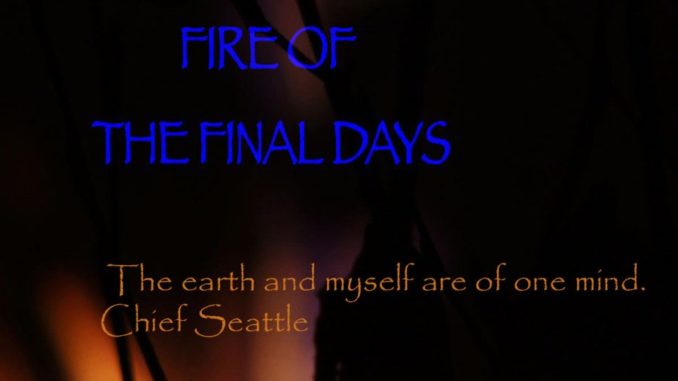
Review Fix chats with filmmaker Douglas LeConte, who discusses his award-winning film, â€Fire of the Final Days,†at this year’s Queens Film Festival.
Review Fix: What was the inspiration for your film?
Douglas LeConte: â€Fire of the Final Days” was inspired by the Seven Fires Prophecy of the Anishinaabeg people, who live in the Great Lakes region of North America. The augury states that one day humanity will have to make a choice between two divergent paths, one where we continue to neglect the natural world around us leading to the incineration of the planet and one where we will once again live in harmony with the cosmos.  As the Western world has gained in living standards and concomitantly less religious, the scientific deterministic model became the new gospel for the educated and wealthy elites of the 17th century. The Western Newtonian-Cartesian view postulated that the cosmos is essentially a big machine, and that science was separate from the realm of the mind, consciousness, morality, societal rules, and religious rituals. In the last century Quantum mechanics precipitated a philosophical Zeitgeist and suddenly consciousness and the cosmos seem now not to be separate entities at all. However in many ways the economic and political sphere of influence today continues to be fashioned by the premise of this obsolete Newtonian-Cartesian paradigm.  I am convinced that Indigenous cultures – unrestrained by the orthodoxy of this deterministic model – have piercing details about our place in the practical calculus of existence, expressed through their old customs beliefs and values. Desperately few remaining, many of them have been compromised by our lifestyle to various extents. The Earth’s language is spiritual and tenuous, a series of whispers and feelings. It is however also remarkably and shockingly incompatible with the language of exploitation and commercialism. Many of us have completely forgotten that there ever was another language, another possibility.
Review Fix: What did you learn about yourself while making?
LeConte: In hindsight I think I was surprised at how unreserved and forthcoming I became. During production I contacted numerous people asking them to contribute an interview or some other element to the work. I developed relationships with many of these people, they had a deep impact on my reshaping my values and world view. Every new element altered the structure of the film so it was always in flux much like when a painter makes marks on a two dimensional surface. That is the way I think and how I work, it was chaotic and unhinging at times but through this process I think I found my voice. I now feel more confident and am ready to try something even more challenging.
Review Fix: What was the most challenging part of making it?
LeConte: Making an Indie film from a remote community like Sioux Lookout is stamped with its own set of inherent challenges. To maintain a semblance of creativity is always the greatest challenge in artistic practice. Shortfalls in equipment and finances forced me to find innovative ways to produce a micro budget film.
Review Fix: How do you want it to be remembered?
LeConte: In this film I have attempted to instill a sense of cultural reciprocity between indigenous and western values, and maybe in a small way redefine Western Culture’s relationship with the non-human universe.
Review Fix: How does it feel to be a part of the festival?
LeConte: The Queens World Film Festival was awesome. The venue was spectacular. To be nominated for several awards was thrilling, and to be awarded the cinematography award for a short documentary was beyond the scope of my imagination.
Review Fix: What’s next?
LeConte: There has been discussions with a script writer about a story where two men living in a small remote community and thrown together through a synchronistic series of events discover a plant that allows them to travel to alternate dimensions. In doing so the plant spirit teaches them the medicinal qualities of other plants which they give to community elders in the form of an elixir and which inevitably improves the quality of their lives far beyond the capabilities of modern western medicine.


Leave a Reply